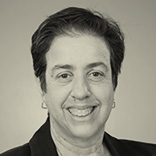
What is This Thing called Facebook? A Look at Media Literacy From My Corner of the World
by Florence Schachter, Crown Center Director, Resident & Community Services
Mrs. C. receives a phone call from a personable sounding young man who engages her in conversation. He is selling an insurance supplement and convinces her that it is the perfect thing for her. Mrs. C. is elderly, lives alone and is dealing with multiple health issues. The caller is so friendly and reminds her of a grandson. She agrees to the purchase and afterward is not really clear what she agreed to purchase. The same scenario happens with Mr. M. an elderly gentleman who also lives alone and is dealing with his own health issues. He receives the same phone call. However, Mr. M. asks several pointed questions and asks the caller to send him more information before making a decision
Although these examples are fictitious, the situations are very real. Senior adults are inundated with mail and television commercials selling them products and promises of quick cures for anything that ails them. Coming from a generation where a handshake and implied trust made the deal, it may be difficult to realize that the slick speaking and handsome spokesperson on the television screen may not have their best interests at heart.
My corner of the world is a non-profit agency that provides independent living apartments and supportive services for those 62 years of age and older with limited financial resources. Approximately 275 adults of diverse cultural, ethnic, educational and financial backgrounds reside at Crown Center for Senior Living where I am the Director of Resident and Community Services. I strive to provide a safe atmosphere for residents to learn new skills and educate themselves so they are empowered to make smart choices. On any given day, one might find residents taking a computer class, attending an exercise class or listening to a speaker address the subject of protecting oneself against scams or recognizing symptoms of seasonal affective disorder.
Staff facilitated monthly resident meetings inform them of happenings within Crown Center and the community at large. With our diverse population it is important to assure that accurate messages are received keeping in mind cultural differences. After a recent meeting, I was approached by an older Russian woman who has a fair command of the English language. Mrs. L showed me a flier that was advertising free dental care for Medicaid recipients. Affordable dental care would meet a very real need for those with limited financial resources. Mrs. L was curious but had reservations about what was really being offered. Here was a media literacy lesson that could not have been better planned! By the way, I called the phone number on the flier and was assured by a friendly representative that he would personally deliver materials the next day explaining the services being offered. That was two weeks ago and I am still waiting.
In this age of 24/7 access to information, it is critical for older adults to understand the techniques advertisers use to manipulate our thinking to create the desired perception. Citizens who develop critical thinking skills will possess a higher degree of freedom because they will be able to make informed choices and actively participate in our information society.
Pew Research Center as part of their Internet and American Life Project found that as of April 2012, about 53% of Americans over the age of 65 use the internet. This is significant considering that in the year 2000, the number was only 14%. (1)
Differences in access to formal education and literacy and the natural process of aging may compromise the capacity of older adults to process information and messages. However, becoming more comfortable with email and social media tools can help older people stay connected with family and friends while reducing feelings of isolation and depression. Online activity has been found to be an effective form of brain exercise that can improve the quality of life of seniors. (2)
It should come as no surprise that older adults use more medical services and acquire more chronic illnesses than any other population segment. The population of those 65 and older is predicted to grow to 71.5 million adults by 2030. Access to accurate health information therefore becomes a priority as health care professionals and older adults strive to understand what services are needed.
The question is not if we should promote media literacy for our older citizens, but how do we level the playing field so they can be active and successful participants in our changing technological world? From my corner of the world, the possibilities are endless.